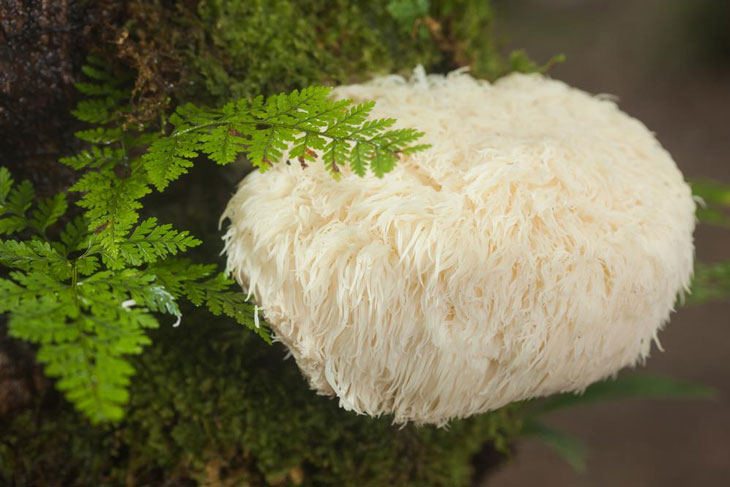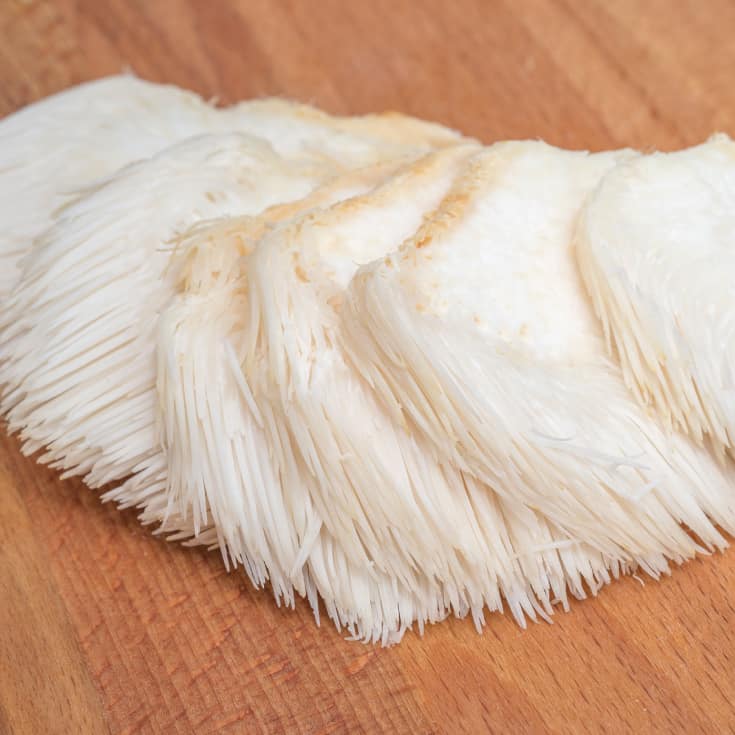Lion’s Mane
$150.00 – $720.00
Description
Lion’s Mane Foe Sales
Lion’s mane (Hericium erinaceus) is a type of medicinal mushroom. Long used in traditional Chinese medicine, lion’s mane is widely available in supplement form. Scientific research shows that lion’s mane contains a number of health-promoting sub.
How to Store, Clean, & Prepare Lion’s Mane Mushrooms
Store
Store unwashed lion’s mane mushrooms in a brown paper bag in the refrigerator. Avoid storing them in the vegetable drawer where there’s too much moisture. You want to place the mushrooms where air can flow around them. This will prevent them from getting soggy or moldy. Just keep in mind that some wild mushrooms store better in the fridge than others. Try your best to buy lion mane mushrooms close to when you plan to cook them.
Clean
To clean the lion’s mane mushrooms, use a brush to remove any dirt particles. Then, wipe the mushroom clean with a paper towel. If the mushroom is particularly dirty, a quick dunk in a bowl of salty water will rid dirt or bugs. Avoid soaking the mushroom in water for too long otherwise, they will get water-logged and become soggy when cooked.
How to Cook Lion’s Mane Mushrooms
The key to cooking any wild mushrooms is simplicity. To cook lions mane mushrooms first, slice them into ½-inch steaks (like a cauliflower!). Heat a skillet over medium heat and do not add any oil. Dry saute until the water releases from the mushroom and the edges start to brown. Then add a healthy pad of butter (or olive oil for a vegan alternative). Cook the lion’s mane mushrooms until golden brown, about 3-5 minutes each side. When cooked properly, the lions mane mushroom has a meaty texture.
Health Benefits
Proponents claim that lions mane can help with a variety of health problems, including:
- Alzheimer’s disease
- Anxiety
- Depression
- High cholesterol
- Inflammation
- Parkinson’s disease
- Ulcers
So far, research on the specific health effects of lions mane is fairly limited. However, findings from animal-based research, test-tube studies, and small clinical trials indicate that lion’s mane may offer certain health benefits, including support for neuronal health.2 Here’s a look at some key study findings.
Brain Function
1. Lion’s mane may benefit older adults with mild cognitive impairment, according to a small study published in Phytotherapy Research in 2009. For the study, researchers assigned 30 older adults with mild cognitive impairment to take either lion mane extract or a placebo every day for 16 weeks.
2. In cognitive tests given at weeks eight, 12, and 16 of the study, members of the lion mane group showed significantly greater improvements compared to members of the placebo group.
3. In a more recent study (published in Biomedical Research in 2011), scientists examined the effects of lion mane on brain function in mice. Results revealed that lion mane helped protect against memory problems caused by the buildup of amyloid beta (a substance that forms the brain plaques associated with Alzheimer’s disease).
4. Studies have also shown a possible neuro-protective effect against ischemic stroke.
5. The National Center for Complementary and Integrative Health (NCCIH) cautions that while some small preliminary studies on the impact of natural supplements on cognitive function have shown modest effects, “direct evidence is lacking.” Claims made to the contrary are not supported b
Depression
Lion’s mane may help alleviate depression and anxiety, suggests a small study published in Biomedical Research in 2010. For the study, 30 menopausal women consumed cookies containing either lions mane or a placebo every day for four weeks. Analyzing study findings, researchers observed that members of the lions mane group were less irritable and anxious and had less difficulty concentrating than members of the placebo group.
Cancer
Preliminary research suggests that lion’s mane shows promise in protection against cancer. For instance, in a 2011 study published in Food & Function, tests on human cells revealed that lion’s mane may help knock out leukemia cells.
In addition, a 2011 study published in the Journal of Agricultural and Food Chemistry found that lion mane extract helped reduce the size of cancerous colon tumors in mice.9 The study’s findings suggest that lion mane may help fight off colon cancer, in part by increasing activity in certain cells involved in the immune response. Another study found that the extract might help reduce the spread of colon cancer cells to the lungs.
– However, it’s too soon to tell whether lions mane can help prevent or reduce cancer in humans.
Possible Side Effects
Little is known about the safety of long-term use and side effects of lion’s mane supplements.5 However, there’s some concern that lions mane may aggravate symptoms in people with allergies and asthma. Therefore, it’s important to consult your physician prior to using lions mane, or any other supplement, if you have a history of allergies and/or asthma or any other medical condition.
Dosage and Preparation
Lion’s mane is commonly consumed in many Asian countries for medicinal and culinary purposes. However, recommended dosage for various benefits is unknown due to a lack of studies.2 Pregnant women should avoid using lion mane products as insufficient evidence is available to determine if any dosage is safe during pregnancy.
Lion’s mane mushroom is widely available for purchase online and supplements containing lions mane are also sold in many natural-food stores and in stores specializing in dietary supplements. Lions mane is commonly sold in powdered form.
stances, including antioxidants and beta-glucan.
What Do Lion’s Mane Mushrooms Taste Like?
Lion’s Mane has a flavor and texture similar to lobster or crab; stringy, meaty, and delicate. Once cooked, it’s slightly chewy, tender, and juicy.
How to Source Lion’s Mane Mushrooms
Lion’s mane mushrooms are in season during late summer through fall. You can also buy Lions Mane Mushrooms at our local farmers market, mushroom grower, or specialty health food store. With a little online research, you can even find spores to grow your own!
To forage Lions Mane mushrooms, check out Forager Chef or The Mushroom Forager.
Additional information
| Lion's Mane | 5 lb, 10 lb, 15lb, 20 lb, 25 lb |
|---|











